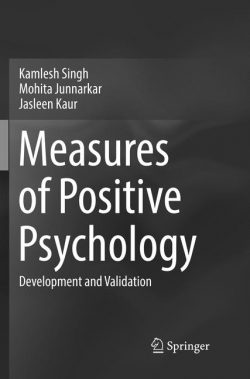This book synthesizes psychoanalytic and Marxist techniques in order to illuminate the resistance to a socialization of the American economy, the protectionist discourses of anomalous American capitalism, and the suppression of the capitalist welfare state. After the Second World War, Democrats and Republicans effectively eliminated the communist and socialist parties from the American political spectrum and suppressed their allied labor movements. The right-wing shift of both parties fabricated a false opposition of left and right that does not correspond to political oppositions in the industrialized democracies. Marxist perspectives can account for the massive inequality of the political economy, but they are insufficient for illuminating its preservation. Psychoanalysis is necessary in order to explain why Americans continue to vote within a two-party system that neglects the lower classes, and why the working class tends to vote against its own interests. The psychoanalytic techniques employed include doubling, repetition, displacement, condensation, inversion, denial, fetishizing, and cognitive repression. In examining the fixation upon the proxy binary of Democrat vs. Republican, which suppresses the true opposition of left vs. right and neutralizes alternatives, the work analyses numerous contemporary political issues through applications of Marxist psychoanalytic theory.
Sale!
The Psychopathology of American Capitalism
฿4,400 ฿3,520
Book Details
| Weight | 400 g |
|---|---|
| Dimensions | 148 × 210 mm |
| ISBN | 9783319857022 |
| Book Cover | Paperback / softback |
| Publisher | Springer International Publishing |
| Pages | 296 |
| Publishing Date | 2018 |
This book synthesizes psychoanalytic and Marxist techniques in order to illuminate the resistance to a socialization of the American economy, the protectionist discourses of anomalous American capitalism, and the suppression of the capitalist welfare state. After the Second World War, Democrats and Republicans effectively eliminated the communist and socialist parties from the American political spectrum and suppressed their allied labor movements. The right-wing shift of both parties fabricated a false opposition of left and right that does not correspond to political oppositions in the industrialized democracies. Marxist perspectives can account for the massive inequality of the political economy, but they are insufficient for illuminating its preservation. Psychoanalysis is necessary in order to explain why Americans continue to vote within a two-party system that neglects the lower classes, and why the working class tends to vote against its own interests. The psychoanalytic techniques employed include doubling, repetition, displacement, condensation, inversion, denial, fetishizing, and cognitive repression. In examining the fixation upon the proxy binary of Democrat vs. Republican, which suppresses the true opposition of left vs. right and neutralizes alternatives, the work analyses numerous contemporary political issues through applications of Marxist psychoanalytic theory.
Introduction
The Relevance of Marxism
Marxist Limitations
The Relevance of Psychoanalysis
Displacement and Condensation
The Rhetoric of Repetition
Cognitive Repression
Kettle Logic
National Daydreams
Fetishizing
Chapter Summaries
Chapter 1: Marx, Freud, and Capital
Chapter 2: Immanent Injustice: Race and Gender
Reproduction Rights: A New Manifesto
Chapter 3: Misrepresentations: Deleuze and Guattari
Chapter 4: Žižek’s Hysterical Commodities
Commodity
Symptom
Hysteria
Chapter 5: Marketed Fetishism
Chapter 6: Language, Thought, and Economy
Chapter 7: Coldwar Cognition
The Beginnings of Ethno-Political Americanism
The Anti-Father Father: Ronald Reagan
Chapter 8: Anticommunism and Academia
Chapter 9: Anglocentrism
Martial Culture and the Modern Language Association of America
Chapter 10: From Economy to Identity: How Many Ends Does It Take to Make a Middle?
Conclusion
The Politics of Entertainment
Afterword: Sanders, Clinton, and Trump
References
Thomas Paul Bonfiglio is Gaines Professor of Literature and Linguistics at the University of Richmond, USA. His publications include Why Is English Literature? Language and Letters for the Twenty-First Century (2013); Mother Tongues and Nations: The Invention of the Native Speaker (2010); and Race and the Rise of Standard American (2002).
Features a unique combination of Marxism and psychoanalysis to explain the anomalous condition of American capitalism
Employs psychoanalysis to account for identity politics and the resistance to alternative political parties
Illuminates a political vocabulary that restricts the possibilities of discourse outside of the system





